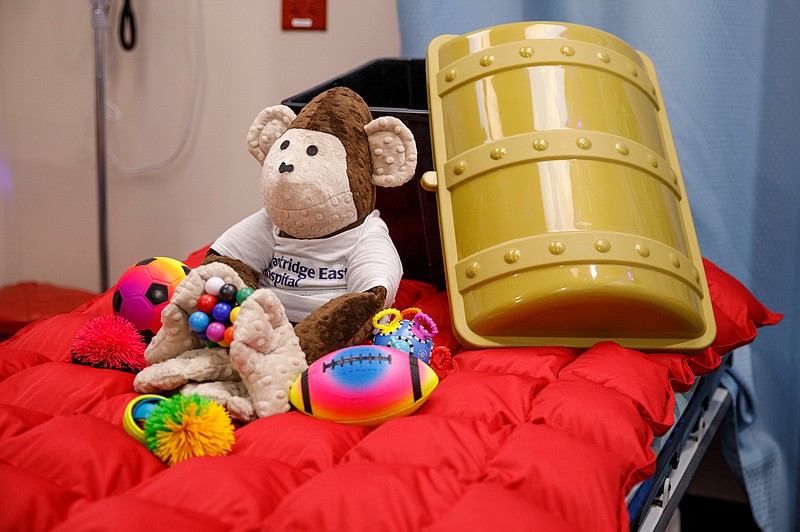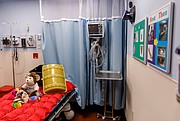The time spent in a hospital emergency room can be stressful for anyone. But the bright lights, loud noises and fast-paced environment can be especially daunting for people with a sensory processing disorder, which is common in developmental conditions like autism.
People with autism spectrum disorder can be hypersensitive to everyday items - such as the faint flicker and hum of a fluorescent light - that may be imperceptible to others. That's why Parkridge East Hospital, along with input from the Chattanooga Autism Center, recently introduced a sensory-friendly emergency room within its emergency department.
"ERs, almost by definition, can be chaotic places," said Jarrett Millsaps, chief executive officer of Parkridge East. "So many of these families already face fear when they're trying to tend to their family members who have sensory issues, whether it be children or grown adults, and we want them to know that this is a place where they don't have to be afraid."
The room has adaptable lights, monitor and sound control and soundproof walls to minimize ambient noise. Breakaway curtains disguise distracting medical equipment along the soft-blue walls, and tools - including toys, weighted blankets and a visual storyboard - prepare patients for processes of care.
Dave Buck, executive director of the Chattanooga Autism Center, said the communication challenges that people with autism often face can complicate their medical care. For example, if a child isn't able to describe symptoms to their parents, they may have an illness that goes too long without being treated.
"And if they don't have time to go to their doctor, they're going to go to an ER," Buck said.
While patients may be accustomed to visiting their primary care provider, the ER is a new environment with new providers, which can further stifle communication. To help, the room includes a magnetic board with more than 50 different images of common medical procedures, like taking blood pressure or applying a Band-Aid, so patients will know what to expect.
"The whole experience should lead to better care," Buck said.
Dale Solomon, director of Emergency Services at Parkridge East, said the goal was to create a room that can be replicated within Parkridge and serve as a model for other hospitals, but that has to come with the right mindset, too.
"The room itself, if you don't know how to use it, is just a room," Solomon said. "The big win that we got out of all this is the relationship we have now with [the Chattanooga Autism Center] and the help that we've gotten from them."
As part of the program's launch, physicians, nurses and support staff received special training to better care for patients with autism. Parkridge East plans to update all of its emergency rooms to be "sensory-friendly" by the end of summer, which Buck said he hopes other hospitals consider doing.
"People with autism are happy [that] people know that autism is a thing, but what they're really waiting for is to be part of society," Buck said. "When an organization makes changes and makes it more inviting for them to either go to work, go to school or to get medical care, that's their end goal - now we're part of society, just like everyone else."
Contact staff writer Elizabeth Fite at efite@timesfreepress.com or 423-757-6673.

